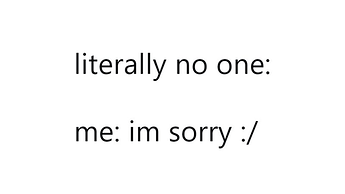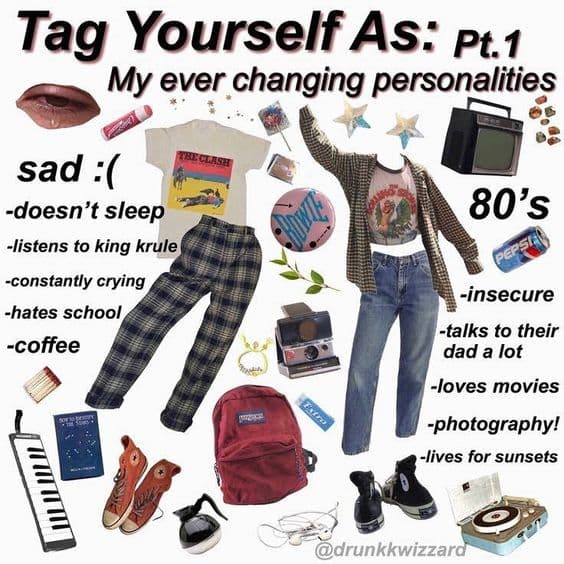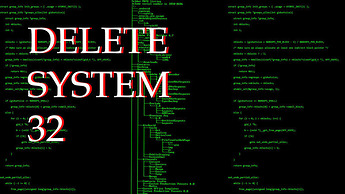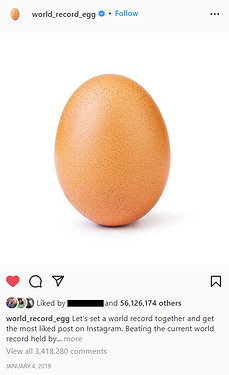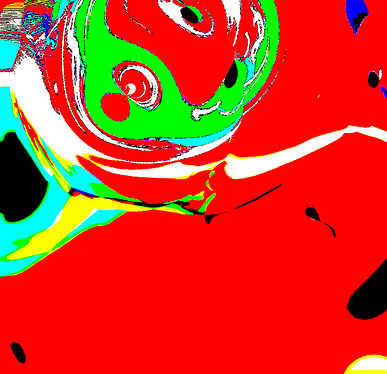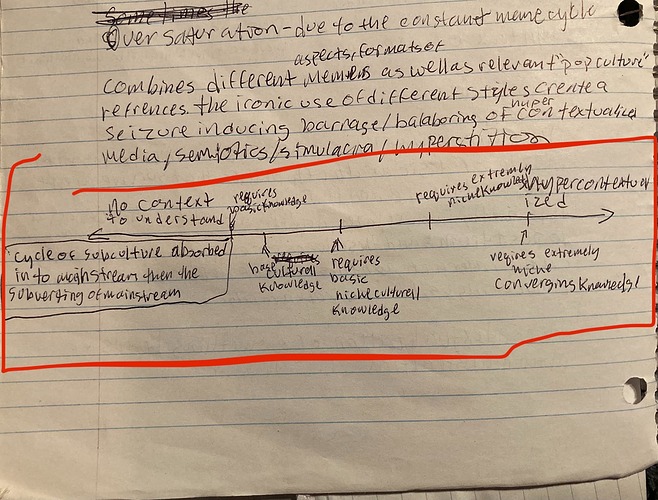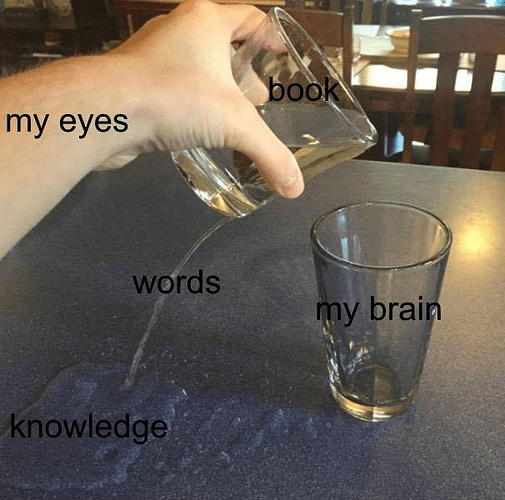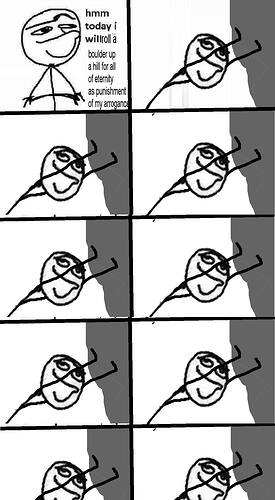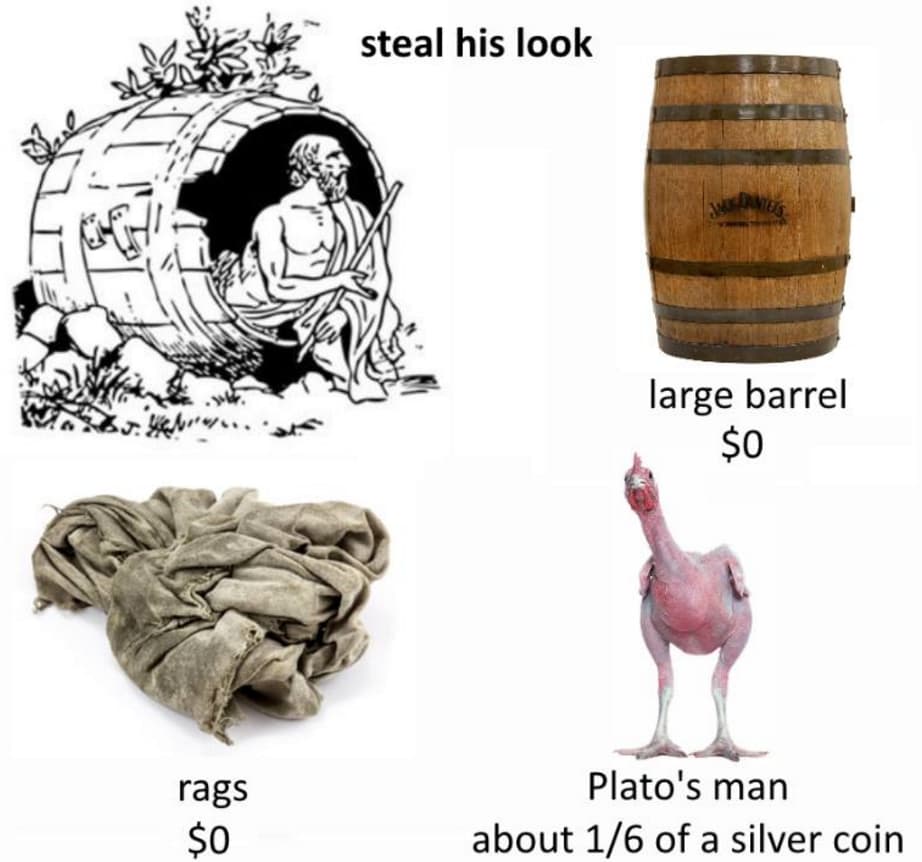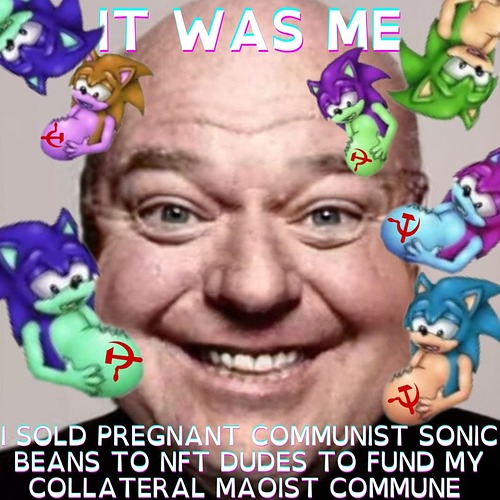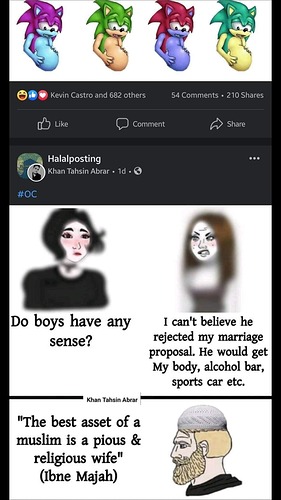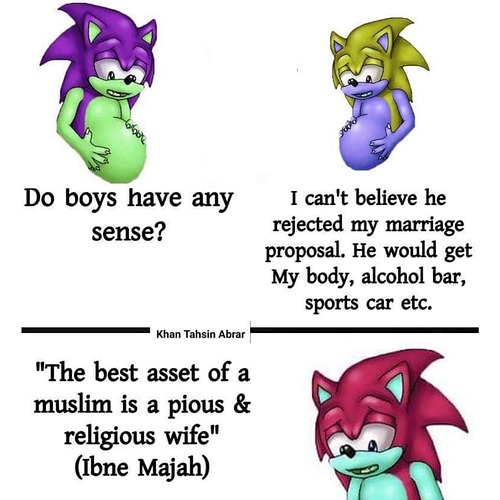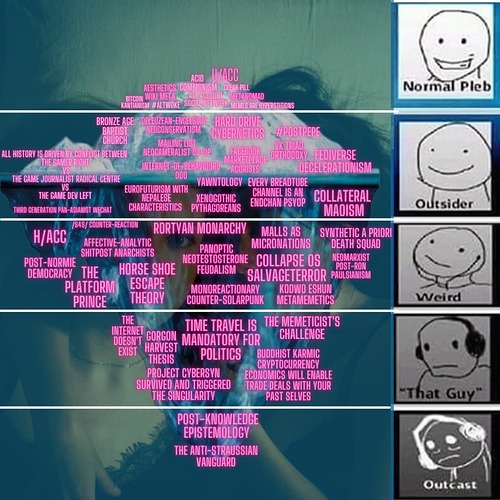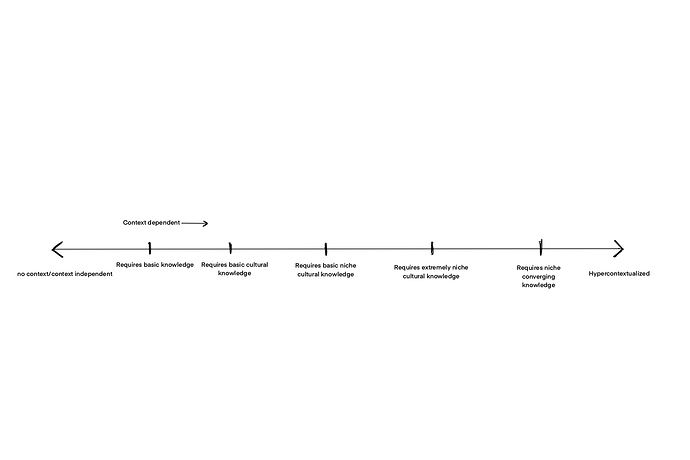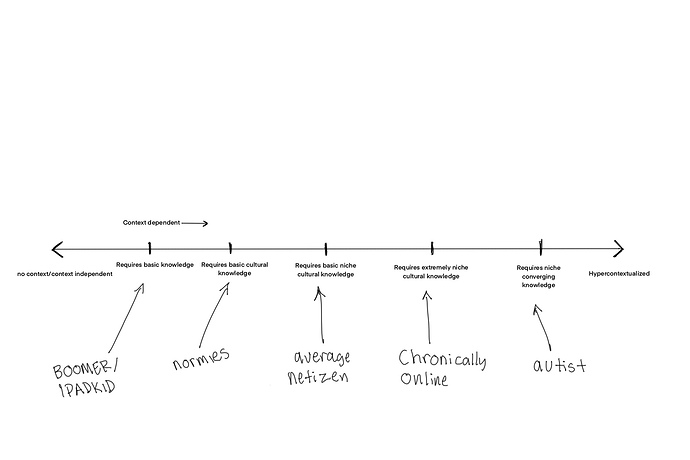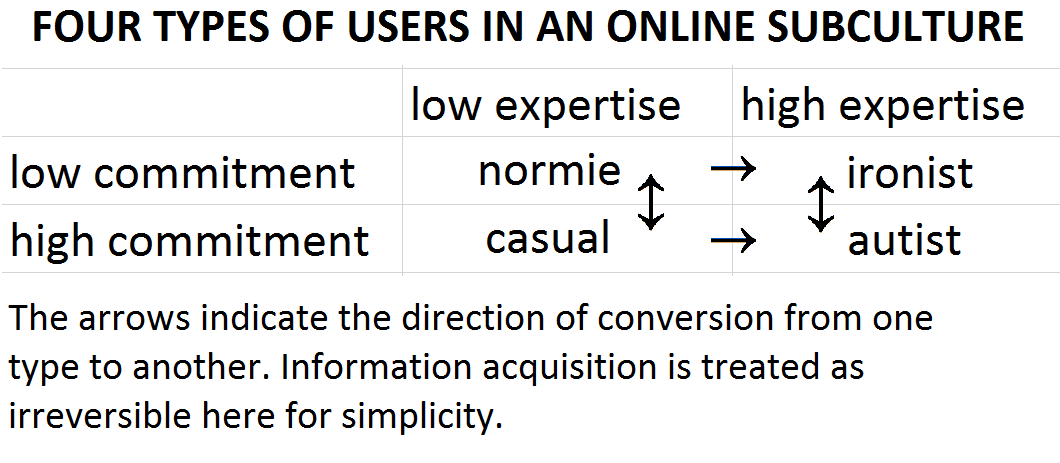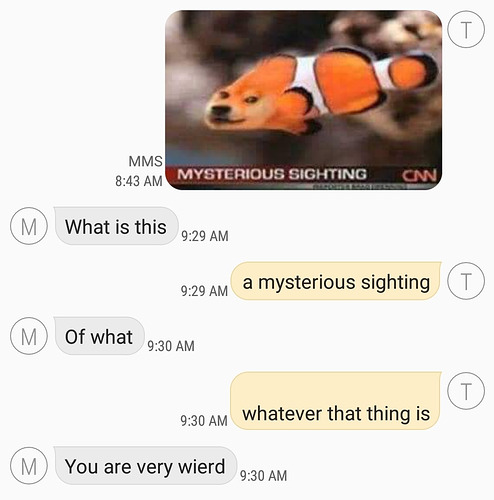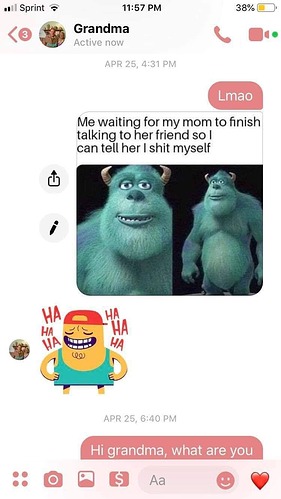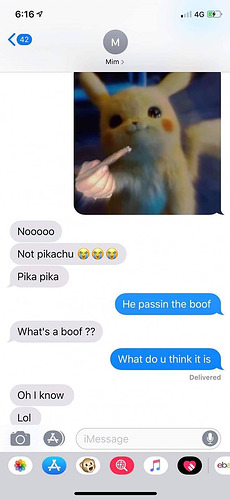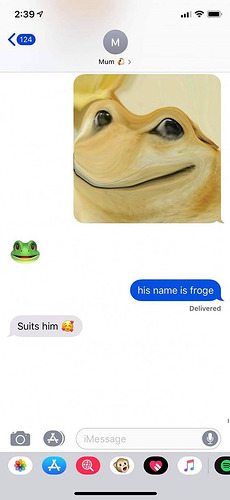This started as a showerthought, but the post quickly became longer than I anticipated as I've tried to cover my bases. If this is a little dry, I might try writing about something more engaging next time, but here are my thoughts about this for the time being.
Something I have noticed happen is the gradual de-emphasis of a meme’s ability to convey meaning by itself, or "the fall of self-contained meme context" put otherwise. There has been a gradual move to create memes that can only be understood/appreciated when combined with the existing context and culture of the relevant memeosphere. I'll refer to this lack of a meme's ability to hold its own meaning as "context-dependence" (and vice-versa) in this post from now on.
Disclaimer: I have not collected any data to back this theory up, it is just an intuition. Also, cultural artifacts have of course always been context-dependent to some extent, so what I'm describing is not a total shift from "complete context-independence" to "complete context-dependence", but a partial shift.
Instead of being a complete package that can be consumed almost as-is, many memes now require previous knowledge of meme conventions and formats, as well as a potential smorgasbord of internet culture “common knowledge” to be fully appreciated. Some memes take a step further, and assume that the audience is already deeply familiar with a specific subculture. So if a meme doesn't make sense to you, it's probably because you're simply not the target audience.
An example of earlier, context-independent memes are demotivational posters (popular in the 2000s-early 2010s). They contain all the information you need to get its message.1
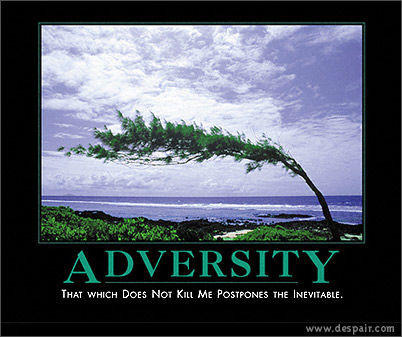
^ 1: Even your grandma will get this.
In contrast, the "literally no one" meme (2019-present), while quite easy to read for the literate memer, relies on the implicit understanding that the blank space after "literally no one:" represents some form of non-initiation or non-proactiveness on the part of everyone except for the subject.2 (An alternative interpretation of the format could be that "literally nobody would express/do X", which of course nobody uses (at least un-ironically).3)
^ 2: You would probably need to explain this to your grandma.
^ 3: Example: No one uses the meme format like this (maybe except for makers of r/bonehurtingjuice-style memes?)
Okay, I think I might have gone a bit too into the nitty-gritty there. Thanks for sticking along.
I have a few ideas about why this is:
• Internet culture/niche maturity
One reason could be the increasing maturity of internet culture and memes, creating a larger pool of shared experience to draw from and reference when making meme content. No longer is the memer speaking to just the common netizen, forced to appeal to all levels of meme literacy (and therefore make all aspects of the meme instantly digestible) to become viral. An example of this is the fact that meme culture is large enough to house the most obscure niches.4
^ 4: "niche memes" are an example of the maturity of meme culture reaching out to even small social circles, creating more context-dependence.
• Shifting Definitions
Another reason may simply be a broadening of the definition of an internet meme: In the past, memes were understood to follow stricter conventions and formats. Nowadays, literally any piece of media can be a meme in the right context. There were obviously earlier bits of internet culture before that heavily relied on references to somewhat obscure things (all your base are belong to us, leeroy jenkins, etc.).5 One could even argue that earlier internet used more of these "referential" memes than current internet.
^ 5: Is "delete System32" a meme? Know Your Meme thinks so, and they may be right.
Extra:
‣ Normies
It is also worth mentioning that the more mainstream the meme is, the less context-dependent it is.6 This should make intuitive sense, since normies will by definition be less tuned-in to the specifics of any niche or underground culture.
^ 6: The world record egg on Instagram is often touted as the quintessential normie meme, and it also happens to be completely context-independent.
‣ Irony
The role of irony and its evolution is hard to overstate here: Irony (and especially meta-irony)’s tendency to create in-groups (who “get” the meme) and out-groups (who don’t get the meme) has created an environment where spreading memes with only partial context is normal or encouraged. The way I see it, irony has had a massive part in spearheading context-dependence, and many ironic styles still use it heavily.7 This practice seems to also have bled through to other genres of memes.
^ 7: The hardcore image manipulation found on some "quantumed memes" pay homage to the deep-fried tradition, but these visual cues are only recognized by those who are quite familiar with the style, making any humour highly context-dependent.
I'm not going to say whether context-dependence is a good or bad thing, the fun lies in watching it unfold in real-time imo ![]()
Let me know if there is anything I have described poorly, and I'll try to clarify! I'll also be happy to provide more examples if requested.
